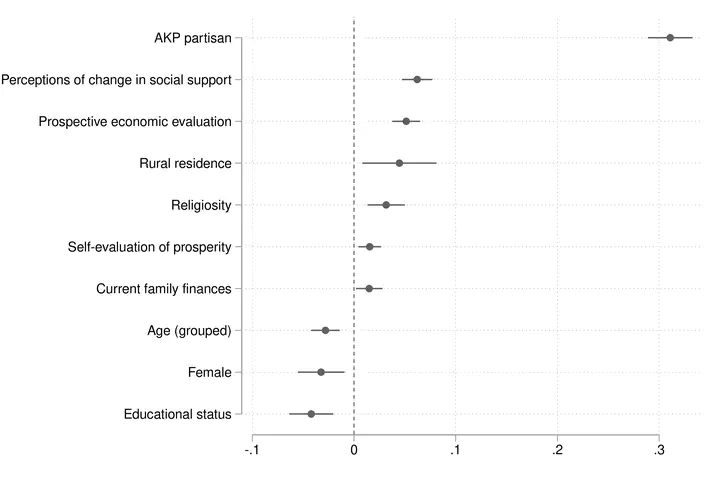Clientelism and Voting Behavior
Empirical Evidence from Turkey

Abstract
Democratic accountability posits that the incumbent parties are held accountable for their performances in office and can be voted out as the ultimate sanction. However, poorly performing parties continue to win elections mainly in developing countries and this trend might facilitate democratic backsliding. This study examines the question from the perspective of clientelism in Turkey as it is one of the worst cases of autocratization and has been ruled by the same party since 2002. The electoral victories in the later part of the AKP rule happened against the backdrop of increase in inequality and economic crises. When tangible benefits offered by the incumbent are important enough to drive voting behavior, they need to be evaluated alongside other explanations. An analysis of survey data from 2016 and 2017 reveals that perceptions of social supports that were started or expanded during the AKP rule have a significant effect on voting behavior and this provides a glimpse into a continuing clientelist linkage in action. Such linkages have possible deleterious effects on democratization through the subversion of democratic accountability.